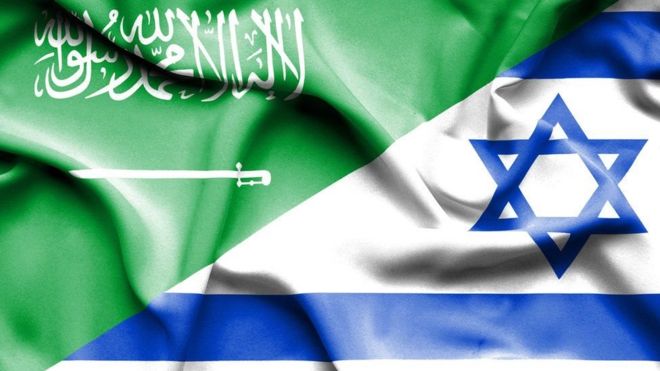
The Kingdom ranked first in an Israeli public opinion poll on the Arab state most important in promoting normalization with it.
The results of this poll come with reports in the Hebrew media about the increasing pace of normalization between the Saudi and Israel at all levels.
The recent crisis in Jordanian-Israeli relations and Jordan’s insistence on its right to reclaim the lands of al-Ghamer and Baqoura have cast a shadow over the Israeli attitudes towards cooperation with Jordan, according to the results of the annual index of the Israeli Institute for Regional Foreign Relations.
Only 3% of Israelis said the government should work to improve cooperation with the Hashemite Kingdom of Jordan, with 71% of respondents acknowledging that the peace agreement with Jordan is a strategic asset to Israel.
On the other hand, the Saudi, with the influence of the policies announced by Crown Prince Mohammed bin Salman and the repeated statements of Israeli Prime Minister Benjamin Netanyahu about cooperation and meeting interests with Gulf countries, received the highest percentage among the Arab countries with which the Israelis want to improve cooperation and relations with 25%.
Egypt received 18% support and 32% said they do not want to improve cooperation and relations with any Arab country.
Improving relations with Turkey appeared to be a priority. Fifty-three percent of respondents said they supported efforts by the Israeli government to improve relations with Turkey, while 32 percent opposed it.
Forty-six percent of the Israelis believe that peace can be reached with the Arab countries in the Gulf, even before reaching a solution with the Palestinians, while 32% said that this is possible only after progress in the peace process with the Palestinians.
This comes as Israeli Prime Minister Benjamin Netanyahu said that the peace that Israel has concluded with the Arab countries (Jordan and Egypt) was based on the Israeli deterrence to these countries.
“There are different types of peace, peace with liberal democracies, where the natural tendency of these democracies is not to fight,” Netanyahu said at a 25-year conference marking the Wadi Araba agreement with Jordan.
“On the other hand, in the case of non-democratic states, they tend to exert force against their neighbors, so peace with dictatorships is not easy. Or later.”
He pointed out that “the key to peace with Arab countries was contingent on its deterrence, and unless that was apparent we did not make any progress. Peace with the late Egyptian President Anwar Sadat came from realizing this.”
“After 1967 war and 1973 war, when it became clear that we were on the banks of Jordan and not on the seashore, the deterrence factor also entered the equation against Egypt and Jordan,” Netanyahu boasted of Israeli and deterrence.
He added, “We have added several factors of security cooperation with Egypt and Jordan, trade cooperation, intelligence cooperation and other matters. There is cooperation in water.”
Netanyahu claimed that when he met with Egyptian President Abdel Fattah al-Sisi and Jordanian King Abdullah II, “I told them that I was there before peace. Israel is stronger today, less vulnerable, and therefore there is a basis for its strength. There is cooperation, and I suggested that we link the Haifa train networks with the Saudi train networks. This provides opportunities for cooperation and the development of regional infrastructure projects that can help the relationship between us and Jordan. ” It stems from the nature of the regimes and because of the Palestinian cause.”